Electrodes
Electrodes are essential in the boiler ignition process. The ignition electrode creates the spark to light the burner. The flame sensing electrode detects the flame and signals the PCB to confirm successful ignition.
Showing all 48 resultsSorted by popularity
- Sale!

Worcester Bosch Electrode kit 8716121817 – New
Original price was: £44.99.£24.99Current price is: £24.99. Add to basket - Sale!

Worcester Greenstar Electrode Kit 87186643010 87181070890
Original price was: £49.99.£24.49Current price is: £24.49. Add to basket - Sale!

Worcester Greenstar Electrode Kit 87161163810
Price range: £24.40 through £230.99 Select options This product has multiple variants. The options may be chosen on the product page - Sale!

Worcester 87161163810 Electrodes 8716117725 Heat Exchanger Cleaning Kit
Original price was: £69.99.£55.99Current price is: £55.99. Add to basket - Sale!

Ideal Flame Sensing & Ignition Electrode (175591 & 175592)
Original price was: £39.99.£28.99Current price is: £28.99. Add to basket - Sale!

Baxi 720767301 Ignition Electrode 720767101 Flame Sensing Electrode
Original price was: £30.99.£24.99Current price is: £24.99. Add to basket - Sale!

Worcester 87376007950 Electrode Kit ? Boiler Spare
Original price was: £29.99.£24.99Current price is: £24.99. Add to basket - Sale!

Worcester Greenstar Boiler Fan+Electrode Kit 87161160670 87172044530 8716118443
Original price was: £94.99.£69.99Current price is: £69.99. Add to basket - Sale!

Vaillant 0020133816 Ignition Electrode – Fits ecoTEC Plus, Pro & Exclusive Boilers
Original price was: £24.99.£16.49Current price is: £16.49. Add to basket - Sale!

Ideal 175591 Ignition Electrode – Fits Logic Esprit Atlantic Independent Code Max Ultra Keston Boilers
Original price was: £24.99.£13.40Current price is: £13.40. Add to basket - Sale!

Viessmann Ignition/Ionisation Electrode 7828718
Original price was: £34.99.£29.99Current price is: £29.99. Add to basket - Sale!

Potterton Electrode Ignition 720222801 5114702
Original price was: £17.99.£14.90Current price is: £14.90. Add to basket - Sale!

Baxi 105 HE A Instant Ignition Electrode Kit 5130293
Original price was: £49.99.£26.90Current price is: £26.90. Add to basket - Sale!
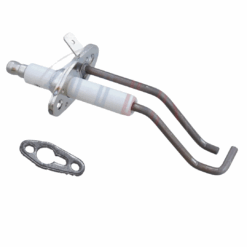
Baxi 624 Combi Ignition Electrode 7686344
Original price was: £49.99.£32.99Current price is: £32.99. Add to basket - Sale!

Baxi Solo 30 HE A Electrode Kit 5132097
Original price was: £29.99.£18.90Current price is: £18.90. Add to basket - Sale!

Ideal 173528 Ignition Electrode Kit
Original price was: £18.99.£14.99Current price is: £14.99. Add to basket - Sale!

Ideal 173529 Flame Sensing Electrode Kit
Original price was: £24.99.£12.99Current price is: £12.99. Add to basket - Sale!

Baxi Megaflo 32 HE A Ignition Electrode 5114702 (Now 720222801)
Original price was: £34.99.£12.99Current price is: £12.99. Add to basket - Sale!

Ideal 175592 Detection Electrode – Ideal Logic Ignition Sensor Replacement
Original price was: £14.99.£9.90Current price is: £9.90. Add to basket - Sale!
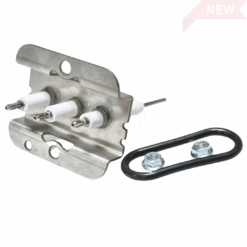
Worcester 871860028A0 Electrode – Fits Greenstar 25/27/30/32/36 Compact Boilers – Gas & LPG
Original price was: £39.99.£27.80Current price is: £27.80. Add to basket - Sale!
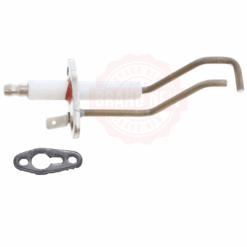
Baxi 224 Combi Boiler Ignition Electrode Assembly 7661804
Original price was: £40.99.£37.99Current price is: £37.99. Add to basket - Sale!

Baxi Platinum 2 Combi 40 GA Flame Sensing Electrode 720767101
Original price was: £24.99.£14.99Current price is: £14.99. Add to basket - Sale!

Biasi Ignition Electrode BI1363103
Original price was: £39.99.£28.99Current price is: £28.99. Add to basket - Sale!

Glowworm Igintion Electrode 0020152565 0020152564
Original price was: £15.99.£14.90Current price is: £14.90. Add to basket - Sale!

Biasi Advance Detection Electrode BI1503108
Original price was: £34.99.£22.49Current price is: £22.49. Add to basket - Sale!

Baxi Duo Tec 33 Combi Ionisation Electrode Kit 720222901
Original price was: £24.99.£12.40Current price is: £12.40. Add to basket - Sale!

Vokera 20043523 Ionisation Electrode-Brand New
Original price was: £29.99.£21.99Current price is: £21.99. Add to basket - Sale!

Vokera Excel 25 ERP Ignition Electrode with Lead 20025737
Original price was: £34.90.£33.16Current price is: £33.16. Add to basket - Sale!

Baxi DUO-TEC 24 HE Ignition Lead and Cable 5129429 5114770
Original price was: £20.99.£12.99Current price is: £12.99. Read more - Sale!

Baxi 830 Combi Ignition Electrode Cable 720766201
Original price was: £29.99.£19.99Current price is: £19.99. Add to basket - Sale!

Vaillant 0020195481 Electrode Ignition and Sensing – Boiler Spare
Original price was: £29.99.£22.90Current price is: £22.90. Add to basket - Sale!

Glowworm Capriz 2 24C Ignition Electrode 0020195557
Original price was: £20.00.£14.99Current price is: £14.99. Add to basket - Sale!

Baxi 212 Heat Only Electrode Set Complete 7216299
Original price was: £59.99.£44.99Current price is: £44.99. Add to basket - Sale!

Alpha 3.025192 Electrode with Seal – Genuine Boiler Ignition Electrode
Original price was: £120.99.£80.40Current price is: £80.40. Add to basket - Sale!
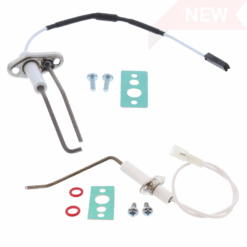
Vokera 20119995 Ignition Electrode & 20119996 Sensing Electrode
Original price was: £69.99.£40.99Current price is: £40.99. Add to basket - Sale!

Remeha S62743 Ignition/Ionisation Electrode
Original price was: £69.99.£51.99Current price is: £51.99. Add to basket - Sale!

Biasi advance electrode BI1663106
Original price was: £39.99.£37.99Current price is: £37.99. Add to basket - Sale!
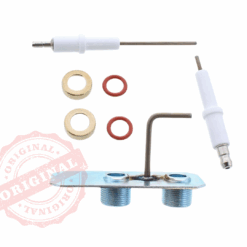
Ferroli Ignition Electrodes Replacement Part 39832360
Original price was: £59.99.£47.00Current price is: £47.00. Add to basket - Sale!
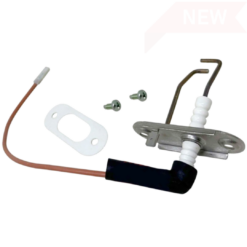
Vaillant Ignition Electrode 0020246709 – Sustain & ecoTEC Plus Boilers
Original price was: £39.99.£24.99Current price is: £24.99. Add to basket - Sale!

Ideal 180653 Detection Electrode – Evomax 2 Boilers
Original price was: £24.99.£20.90Current price is: £20.90. Add to basket - Sale!

Biasi BI1313105 Ignition Electrode – Activ A Boilers
Original price was: £49.99.£39.99Current price is: £39.99. Add to basket - Sale!
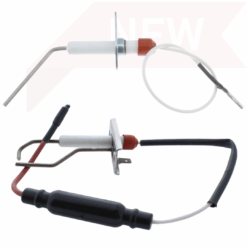
Alpha 3.017477 Ignition Electrode & Lead + 1.031070 Detection Electrode
Original price was: £129.99.£99.90Current price is: £99.90. Add to basket - Sale!

Viessmann 7831346 Ignition & Ionisation Electrode with Burner Gasket 7836177
Original price was: £89.99.£78.99Current price is: £78.99. Add to basket - Sale!

Baxi System 100 HE Plus Kit Electrodes 5110992
Original price was: £69.99.£40.90Current price is: £40.90. Add to basket - Sale!

Alpha 6.1000802 Ignition Electrodes Pair (L/R)
Original price was: £69.99.£49.99Current price is: £49.99. Add to basket - Sale!

Baxi Combi Instant 105E HE Ignition Electrode 247384 (Pack of 2)
Original price was: £59.99.£24.99Current price is: £24.99. Add to basket - Sale!

Ideal 176913 Ignition Electrode for C26/C32/C40, MAX & S Series Boilers
Original price was: £59.99.£54.90Current price is: £54.90. Add to basket - Sale!

Ideal 176914 Detection Electrode (with Gasket & Screws) – Genuine Ideal Boiler Spare
Original price was: £59.99.£50.90Current price is: £50.90. Add to basket